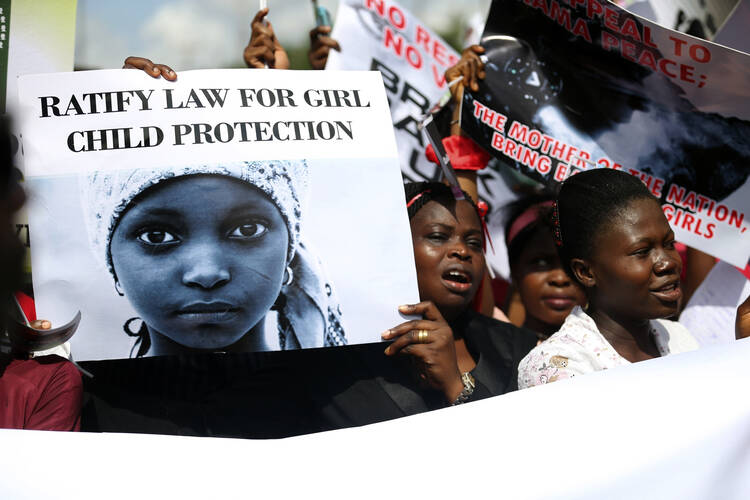While the Nigerian government negotiates with the Islamic militant group Boko Haram for the release of 200 abducted schoolgirls, some church leaders in the country’s conflict-ridden north are expressing doubts about any impending resolution.
Nearly two weeks ago, the government announced a cease-fire with the militants. It set Oct. 24 as the date for the girls’ release, but that failed to happen.
The Rev. John Bakeni, secretary of the Roman Catholic Diocese of Maiduguri, which includes the conflict regions of Borno, Adamawa and Yobe, said Boko Haram never acknowledged it was negotiating with anyone.
“This is a farce and a grand deceit,” said Bakeni. “Boko Haram has become more vicious, killing anything that moves—male, female, children, elderly …
“I think the talks are a tactic for them to regroup, recruit, rearm and strategize,” added the priest.
The group, which announced it was setting up a caliphate, or an Islamic state, in late August, has targeted churches, government installations and public buildings, while stepping up assassinations and abductions.
The schoolgirls’ abduction sparked global outrage, and their continued captivity has led to criticism of the Nigerian government’s efforts to secure their release.
On Oct. 27, Human Rights Watch said Boko Haram had abducted more than 500 women and girls since 2009. Its victims are threatened with beatings or death if they don’t convert to Islam, wear the hijab or face veil and quit attending school, Human Rights Watch said.
The name “Boko Haram” translates to “Western education is sin” in the local Hausa language. The group has said its aim is to impose Shariah across Nigeria, which is split between a majority-Muslim north and a mostly Christian south.








